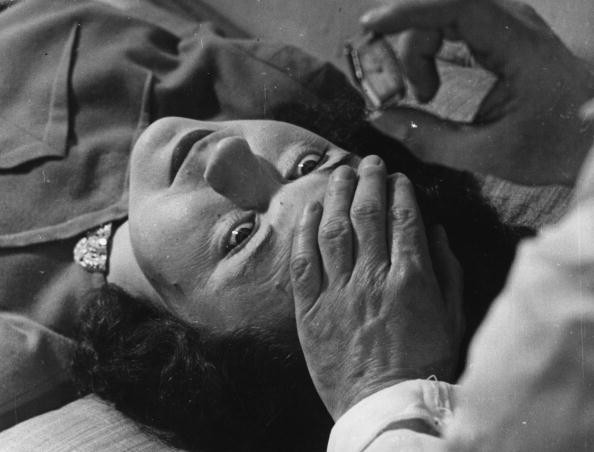Hypnotherapy: What happens to your brain during hypnosis and how can it help?

When Emily Simons lost her mother aged 25, she found it hard to cope with the grief. She still remembers the feeling of numbness and hopelessness she experienced. When nothing brought much relief, a friend gave her the number of a hypnotherapist.
Few therapies divide public opinion and doctors like hypnotherapy. Portrayed for years, in literature and cinema, as a mysterious, almost mystical practice it is often viewed both with fear and fascination. Yet, the reality of hypnotherapy is very different from the state of deep trance often portrayed in popular culture.
Hypnotherapy relies on the technique of hypnosis, and thanks to the guidance of the hypnotherapist, the patient submits to an altered state of consciousness. A patient enters a sort of trance, with deeper levels of awareness of little details that would not normally matter. The therapist can then make therapeutic suggestions to help the patient achieve his goal.
"Most people go through this natural, focused state of thinking every day, for example when they are really into a book. We don't put people in this state, we simply guide them. We let them get a purer access to the unconscious, a trapped emotion or a memory" Peter Mabbutt, hypnotherapist and vice-president of the British Society of Clinical Hypnosis told IBTimes UK.
Who is it for?
Hypnotherapy helps patients who feel they are stagnating in one aspect of their life. Patients suffering from high levels of anxiety, phobia (such as fear of flying), trauma or addictions can reap the benefits of hypnotherapy, but it can also be used to treat skin conditions, help people lose weight or reduce pain.
Emily's case of undergoing hypnotherapy to overcome a traumatic life event is quite common. For such patients, hypnotherapy can be an effective way to regain confidence. "It is difficult to explain how, but I believe it has worked for me. I can speak of my mother without crying. I trust myself more, I am more optimistic. In hypnotherapy, you have a relationship based on trust with the therapist, so I talk about all the events in my life before anything else happens", Emily confides.
Yet, like any other therapy, hypnotherapy does not work for everybody. Recent research by Stanford University has suggested only about 75 % of patients can actually be hypnotised. Some personalities may also be less suited for this kind of therapy, which requires a lot of openness and trust.
"No therapy fixes all, and it is my role to refer the patient to other types of therapies if I feel they will not benefit from hypnotherapy, or if they might be better off combining it with other kinds of psychological work", Mabbutt explains.
How does hypnotherapy work on the brain?
It is still not entirely clear how hypnosis works on the brain, but in recent years, more studies have been dedicated to the topic, with the help of fMRI scans. The same Stanford study pointed out that people who couldn't enter a hypnotic trance displayed less brain activity in the areas associated with executive control and attention.
Broadly speaking, the idea behind hypnosis is that certain parts of the brain are going to be switched on by the therapist's suggestions, while the activity of others will be suppressed. For example, if a patient wants to quit smoking, under hypnosis and with the help of the appropriate suggestions, the therapist is going to strengthen the activity of the prefrontal cortex, a decision-making hub in the brain, to override the experience of withdrawal which happens when a person stops smoking.

Pain management is another area for which hypnotherapy is very popular and MRI scans show it might work on some patients. When asked to imagine that their pain is a flame which slowly stops burning, the activity in the somatosensory cortex, responsible for tactile experience and suffering, diminished.
The patient only enters a trance because he wants to, and he remains is in control the whole time. "This means he can interrupt the session if one of the therapist's suggestion does not work for him or contradicts his code of morals," stresses Mabbutt.
What does science say?
Although more research has been carried out in previous years, some mystery clearly still surround the way hypnosis works. Quantitative studies have been conducted but have come up with variable results.
Some studies have shown hypnotherapy was effective for relaxation, anxiety management and trauma. Some evidence have also been gathered to show hypnotherapy could help people stop smoking. In 1992, a study hailed it as the best therapy to kick smoking, but since then, this has been contradicted on various occasions.
Cancer pain relief is another area which has benefited from increased research in the past decade. However, results remain inconsistent. According to Cancer Research UK, in 2006, a cancer pain review suggested that for children with the disease, hypnotherapy reduced physical suffering and distress. These results were later confirmed by a 2012 Spanish study. Hypnotherapy also seemed to reduce chemotherapy sickness in children, but since only one study has been conducted on adults, it is difficult to generalise. All the research which looked at how hypnotherapy alleviates advanced cancer symptoms were of poor quality from which any conclusions could be reached.
"More qualitative research is needed so we can start looking in more depth at people's perceptions and at the variability between people's response to hypnotherapy to best suit individual needs", concludes Mabbutt.
Peter Mabbutt is Vice President of the British Society of Clinical Hypnosis but also Programme Leader for the UK's only named MSc in Clinical Hypnotherapy with the London College of Clinical Hypnosis.
© Copyright IBTimes 2025. All rights reserved.






















